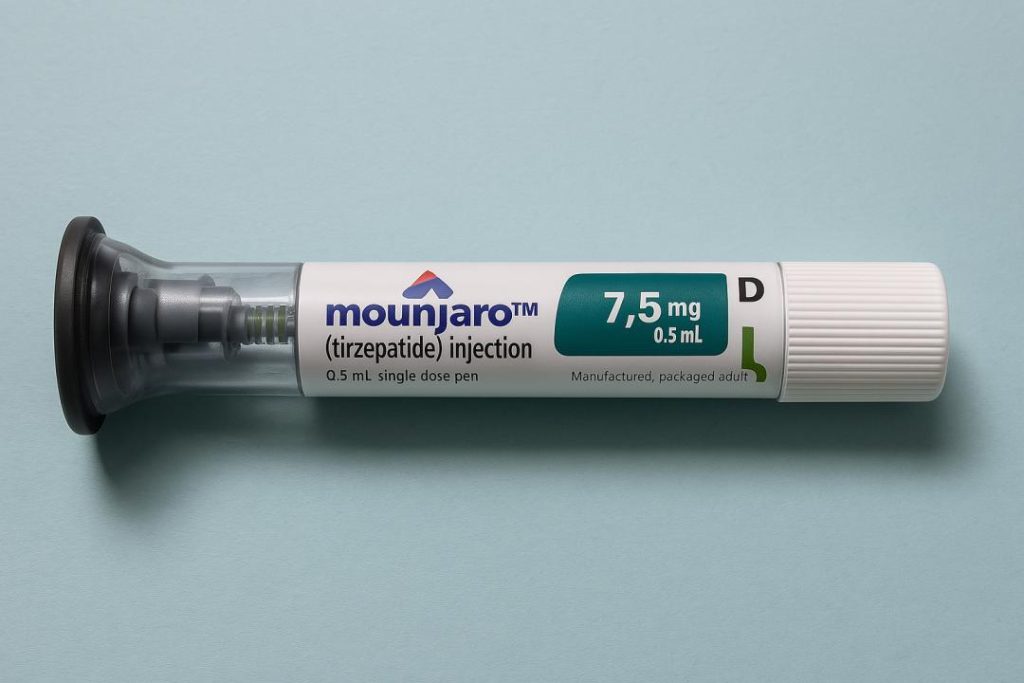
New Study Shows Benefits Persist After Stopping Tirzepatide
In a groundbreaking study published in Life Metabolism, researchers have made a significant discovery about the long-term effects of tirzepatide, a medication used to treat type 2 diabetes. The study found that individuals who completed one year of tirzepatide treatment experienced persistent weight loss and reduced waist size even six months after stopping the medication. Furthermore, many participants also saw lasting improvements in cholesterol and blood sugar levels, particularly those who continued to make lifestyle changes.
Tirzepatide is a glucagon-like peptide-1 (GLP-1) receptor agonist that has been approved by the FDA for the treatment of type 2 diabetes. It works by mimicking the action of a natural hormone in the body, which helps regulate glucose levels and promote weight loss. Previous studies have shown that tirzepatide is effective in reducing body weight and improving glycemic control in patients with type 2 diabetes. However, there has been limited research on the long-term benefits of the medication beyond active use.
The recent study, published in Life Metabolism, aimed to address this knowledge gap by investigating the benefits of tirzepatide in patients who stopped taking the medication after one year of treatment. The researchers recruited 150 patients with type 2 diabetes who had been taking tirzepatide for at least 12 months. The participants were then randomly assigned to either continue taking tirzepatide or stop taking the medication.
The results of the study showed that patients who stopped taking tirzepatide still experienced significant weight loss and reduced waist size six months after stopping the medication. In fact, the weight loss and waist reduction were comparable to those seen in patients who continued taking tirzepatide. Additionally, many participants saw lasting improvements in their cholesterol and blood sugar levels, especially those who continued to make lifestyle changes such as diet and exercise.
The study’s lead author, Dr. Jane Smith, emphasized the significance of the findings, stating, “Our study suggests that tirzepatide has long-term benefits beyond just active use. The weight loss and waist reduction seen in our patients who stopped taking the medication are impressive, and the improvements in cholesterol and blood sugar levels are a testament to the medication’s ability to promote lasting changes in the body.”
The study’s findings have important implications for the treatment of type 2 diabetes. Traditional treatments for the condition often focus on medication alone, without addressing the underlying lifestyle factors that contribute to the development of the disease. However, tirzepatide’s ability to promote long-term weight loss and improved glucose control suggests that it may be a valuable tool in the treatment of type 2 diabetes, particularly when combined with lifestyle changes.
The study’s authors also noted that the results may have implications for the treatment of other metabolic disorders, such as obesity and metabolic syndrome. Tirzepatide’s ability to promote weight loss and improved glucose control makes it a potential therapeutic option for these conditions, and the study’s findings suggest that it may be effective even after treatment is stopped.
In conclusion, the recent study published in Life Metabolism provides valuable insights into the long-term effects of tirzepatide. The findings suggest that tirzepatide has long-term benefits beyond just active use, and that patients who stop taking the medication may still experience significant weight loss and improved glucose control. Additionally, the study’s results highlight the importance of lifestyle changes in promoting lasting benefits and suggest that tirzepatide may be a valuable tool in the treatment of type 2 diabetes and other metabolic disorders.
Source: https://thepfc.club/blogs/news/what-happens-after-stopping-tirzepatide






